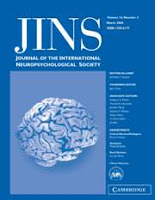 "All children and adolescents have the right to grow up in an
"All children and adolescents have the right to grow up in anenvironment protected from the negative consequences
of alcohol consumption and, to the extent possible, from
the promotion of alcoholic beverages."
Läs mer >>>
 "All children and adolescents have the right to grow up in an
"All children and adolescents have the right to grow up in an Flera studier visar att det finns ett tydligt samband mellan en hög konsumtion av alkohol under graviditeten och spädbarns hälsa, beteende och inlärningsförmåga. Kunskapen om de långsiktiga konsekvenserna är dock bristfällig. Resultaten i rapporten tyder på att investeringar i barns hälsa redan i fosterstadiet har betydande effekter för utbildning och inkomster senare i livet.
Flera studier visar att det finns ett tydligt samband mellan en hög konsumtion av alkohol under graviditeten och spädbarns hälsa, beteende och inlärningsförmåga. Kunskapen om de långsiktiga konsekvenserna är dock bristfällig. Resultaten i rapporten tyder på att investeringar i barns hälsa redan i fosterstadiet har betydande effekter för utbildning och inkomster senare i livet.
 Barn med skader av alkoholbruk i svangerskapet og behovene barna har for hjelp og tilrettelagte tiltak i hjem og skole er i fokus når vi inviterer til seminar 28 april i Sandefjord. Fosterforeldre/Adoptivforeldre og fagmiljø i fosterhjemsentraler / barnevern og skoler er blant de vi henvender oss til
Barn med skader av alkoholbruk i svangerskapet og behovene barna har for hjelp og tilrettelagte tiltak i hjem og skole er i fokus når vi inviterer til seminar 28 april i Sandefjord. Fosterforeldre/Adoptivforeldre og fagmiljø i fosterhjemsentraler / barnevern og skoler er blant de vi henvender oss til Measuring the levels of FAEE in an infant's first bowel movement could be a useful method for identifying children at risk for FAS, which may make early intervention possible.
Measuring the levels of FAEE in an infant's first bowel movement could be a useful method for identifying children at risk for FAS, which may make early intervention possible.
 Early reports have described symptoms similar to attention-deficit/hyperactivity disorder that followed brain trauma or viral encephalitis, and recent MRI studies have demonstrated brain volumetric changes that may be involved in the pathophysiology of the syndrome. The American Psychiatric Association's Diagnostic Statistical Manual, introduced in 1968, emphasizes symptomatic criteria in diagnosis. Here, an overview of environmental factors in the etiology of attention-deficit/hyperactivity disorder is presented to encourage more emphasis and research on organic causal factors, preventive intervention, and specific therapies.
Early reports have described symptoms similar to attention-deficit/hyperactivity disorder that followed brain trauma or viral encephalitis, and recent MRI studies have demonstrated brain volumetric changes that may be involved in the pathophysiology of the syndrome. The American Psychiatric Association's Diagnostic Statistical Manual, introduced in 1968, emphasizes symptomatic criteria in diagnosis. Here, an overview of environmental factors in the etiology of attention-deficit/hyperactivity disorder is presented to encourage more emphasis and research on organic causal factors, preventive intervention, and specific therapies.
 Welcome to the Tools for Success Curriculum: Working With Youth With Fetal Alcohol
Welcome to the Tools for Success Curriculum: Working With Youth With Fetal Alcohol
 These results, which indicate that, although executive function deficits occurred in both clinical groups, the degree and pattern of deficit differed between the ALC (alcohol exposed group) and ADHD groups, may improve differential diagnosis. (JINS, 2008, 14, 119–129.)
These results, which indicate that, although executive function deficits occurred in both clinical groups, the degree and pattern of deficit differed between the ALC (alcohol exposed group) and ADHD groups, may improve differential diagnosis. (JINS, 2008, 14, 119–129.)